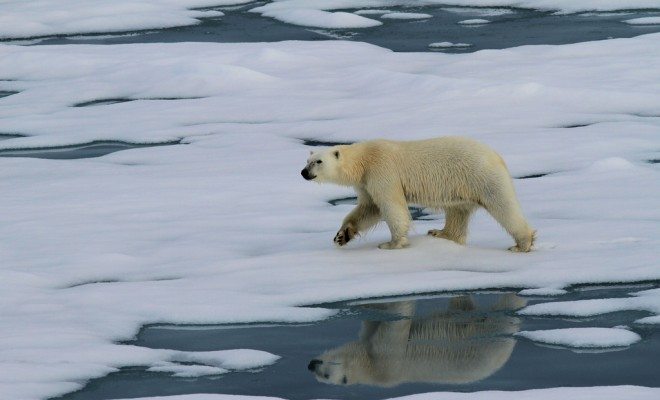 Image courtesy of [michael bamford via Flickr]
Image courtesy of [michael bamford via Flickr]
Energy and Environment
Climate Engineering is Not a Solution to Climate Change
A relatively new concept regarding how to address large-scale environmental concerns has been popping up in the debate lately. It’s called “geoengineering” and it involves deliberate human actions intended to remedy global warming. There are many potential problems with this concept, and hopefully it never comes to full fruition.
Geoengineering leans on technological intervention intended to stabilize the climate and reduce the effects of human-induced global warming. For example, there have been several proposals as to how to remove carbon dioxide from the oceans, such as introducing large amounts of lime, as well as enveloping the planet in a layer of sulfate in order to reduce the amount of solar radiation reaching the surface.
Problem #1
Assuming people are finally coming around to the idea that human society has been playing a negative role in climate change, geoengineering stands as a human role in seeking to fix it. Much environmental damage resulting from human activity over the centuries has partly been a consequence of mankind’s hubris, or idea of superiority over nature and ability to tame, control, and manipulate it to his advantage. Geoengineering is no different; while it may be a concept with good intentions, it is born of a line of thinking that has already proven itself to be problematic and damaging; there are many reasons to be concerned that these steps would cause more and unforeseen problems.
Intentionally enveloping the planet in anything sounds like a bad idea. If part of the reason why we continue to damage the Earth is that we still do not fully understand its environments and ecosystems, meaning that we are not yet able to live harmoniously with it, then directly intervening could cause immediate problems because we simply do not know what we are doing.

Earth’s thin atmosphere. Courtesy NASA’s Marshall Space Flight Center via Flickr.
Problem #2
There is no substitute for reducing emissions and pursuing more sustainable lifestyles and societies. Geoengineering might be thought of as a get-out-of-jail-free card; we enter into a vicious cycle of causing damage and attempting to fix it without addressing the real causes of the problems in the first place. Some people counter that it could spark investments and more attention to innovative scientific research, but those things can also be accomplished with a more wholehearted pursuit of sustainability and conservation.

A severe drought in Australia. Courtesy of Vicki via Flickr.
Problem #3
Geoengineering is being described as an attempt to remedy “global warming.” In this sense, its purpose is to try to stop rising temperatures. It should be noted that “global warming” is a less and less common phrase, because this is not the only issue at hand. “Climate change” is a more appropriate term, because the issues we face have more to do with radicalization of climate and weather; it is a matter of more extremes, not just rising temperatures. Hotter summers, yes, but also colder winters, stronger hurricanes, more frequent earthquakes, more floods, more droughts, and so on. If we attempt to geoengineer the Earth with the objective of reducing warming temperatures but not stabilizing the climate in general, disaster may follow.

Hurricane Katrina. Courtesy of NASA Goddard Space Flight Center via Flickr.
An ongoing trial project in Iceland has been injecting carbon dioxide mixed with water into volcanic rock. While previous attempts at carbon storage have not borne fruit because the element tends to bubble back up to the surface, this approach relies on the reactive nature of basalt; in a relatively short amount of time, the mixture crystalizes into minerals. Yet this process is enormously expensive and requires a titanic amount of water. Again, it does not serve as a solution to our polluting ways. There are also many other causes of pollution and environmental damage that are not addressed with this process. Finally, there is still plenty of doubt as to how safe it really is. If injecting chemicals into shale rock for fracking purposes has proven to induce earthquakes, who knows what consequences tampering with volcanism, which is by nature volatile and unpredictable, might have.
There is no shame in letting go of our pride and admitting that we are not masters of the Earth. She is her own master. Yes, we have caused many problems of late. But rather than continuing to assert control and attempting to fix it, and in so doing only furthering those ailments and further endangering ourselves, we should cut our losses. It would be best to continue attempting to change our ways, and have faith that the Earth can repair itself in time. After four billion years it is still here and relatively healthy; ten thousand years of human civilization will not do it in.








Comments